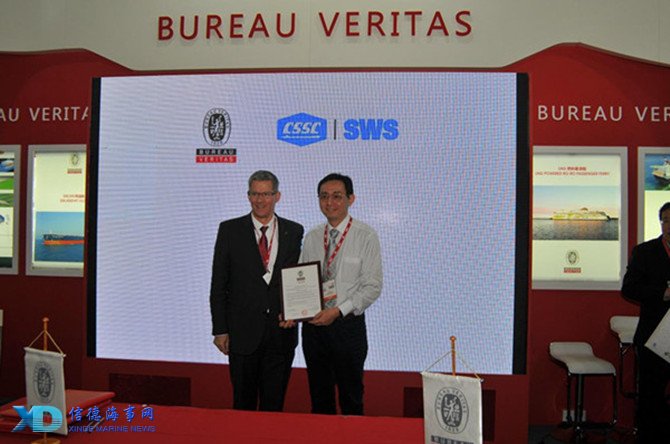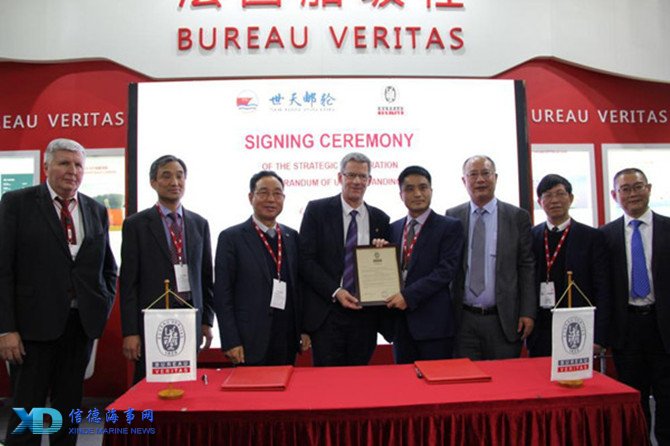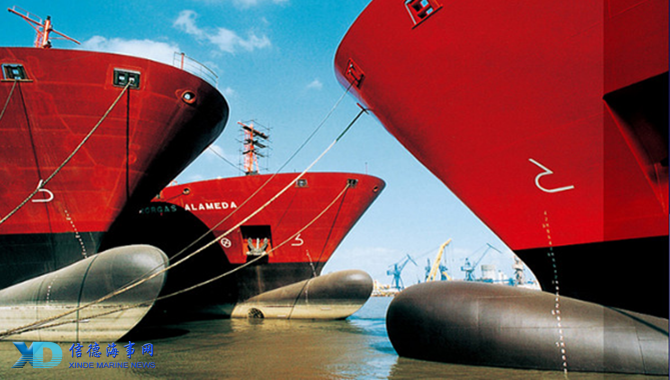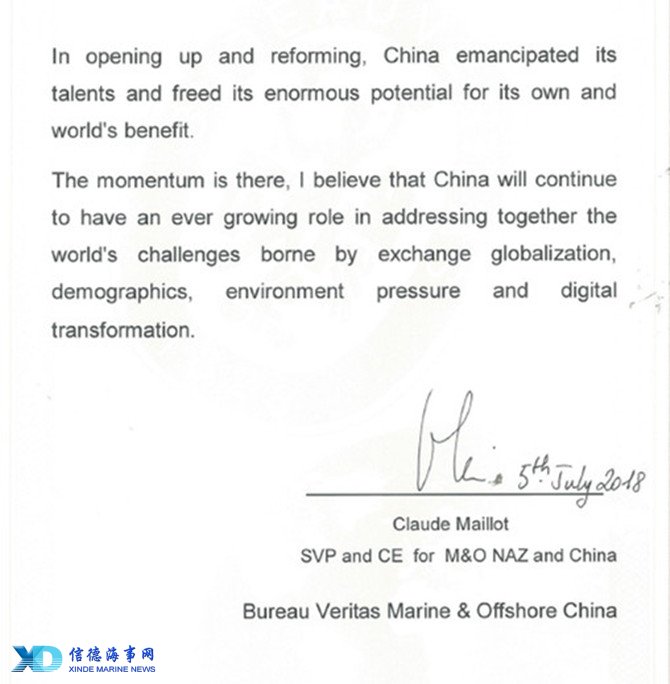Indeed, it is well known that Korea was once number one in the shipbuilding industry. The country’s three major shipbuilders, including Hyundai Heavy Industries, Samsung Heavy Industries and Daewoo Shipbuilding & Marine Engineering were invincible. However, with the rapid development of China's shipbuilding industry, the center of the world's shipbuilding industry has turned to China.
 In 2017, Claude(left) on behalf of Bureau Veritas issued an AIP certificate for the 210,000-ton dual-fuel bulk carrier of Shanghai Waigaoqiao Shipbuilding Co, Ltd.
In 2017, Claude(left) on behalf of Bureau Veritas issued an AIP certificate for the 210,000-ton dual-fuel bulk carrier of Shanghai Waigaoqiao Shipbuilding Co, Ltd.
Claude mentioned the latest 320,000-ton dual-fuel super-large oil tanker and 210,000-ton dual-fuel bulk carrier developed by Shanghai Waigaoqiao Co, Ltd, which he said demonstrated the company has made outstanding achievements in producing high-tech ships with independent intellectual property rights. These two types of vessels are the largest tonnage currently recognized by the classification societies worldwide.
As Claude said, Waigaoqiao Shipbuilding Co., Ltd. ranks among the top five in the world in terms of comprehensive strength. It is currently the most automated shipbuilding company in China with the most advanced facilities, enjoying the reputation of being China’s No.1 shipyard.
In line with the pursuit of environmental protection by Bureau Veritas, as a leading company in the shipbuilding industry, Waigaoqiao Shipyard has long been identified with this ideology and is at the forefront of the world in building environmentally friendly ships, leading the development direction of future shipbuilding technology. He praised the Capesize Bulk Carrier, an environmentally-friendly vessel independently developed by Waigaoqiao Shipbuilding Co., Ltd, as beingthe “first brand” for Chinese ship exports with the largest market share in the international market.
As China has joined the Paris Climate Change Agreement and the resulting 0.5% sulfur emission limit in the global seas by 2020 comes into force, the development of green shipping is very important for China’s sustainable development. More than ten years cooperation with Waigaoqiao Shipbuilding Co. Ltd has allowed Claude to witness its great performance in green shipping.
The completion of the Shanghai International Passenger Transport Center terminal has also given rise to the cruise industry. Claude talked about Bureau Veritas’certification of China's first self- designed 36,800 gross-ton luxury cruise ship.“This marks a historic breakthrough in the design of luxury cruise ships in China and is an important milestone in the development of China's cruise industry.”

For the future, Claude is very optimistic. “The Belt and Road Initiative is bringing opportunities to us. It again gives rise to the development of trade between China and other countries, particularly those along the route to Europe and inside Europe. It will create needs for new infrastructure, such as trains and roads, all of which are related to our own activities of testing, inspection and classification, so this will foster the business development of Bureau Veritas in China.”
“Actually, there are 14,000 people working for Bureau Veritas in China. We used to say that China is the second home of Bureau Veritas, but it should be the first, because China has now become the largest operation center of Bureau Veritas, even larger than the French headquarters and the number of employees in China will grow even further.”
Speaking of the whole industry, he said, “When Bureau Veritas came back to China in 1993, there were only two or three foreign classification societies, but now there are eight or nine. In addition, the industry is undergoing reform. The Chinese maritime safety authorities are currently considering allowing foreign classification societies to provide classification services to Chinese flag vessels, which would give us more opportunities to help improve the quality of shipping equipment produced in China, build Chinese brands, and make greater contributions to Chinese society.”
Sources:Eastday
Please Contact Us at:
admin@xindemarine.com






